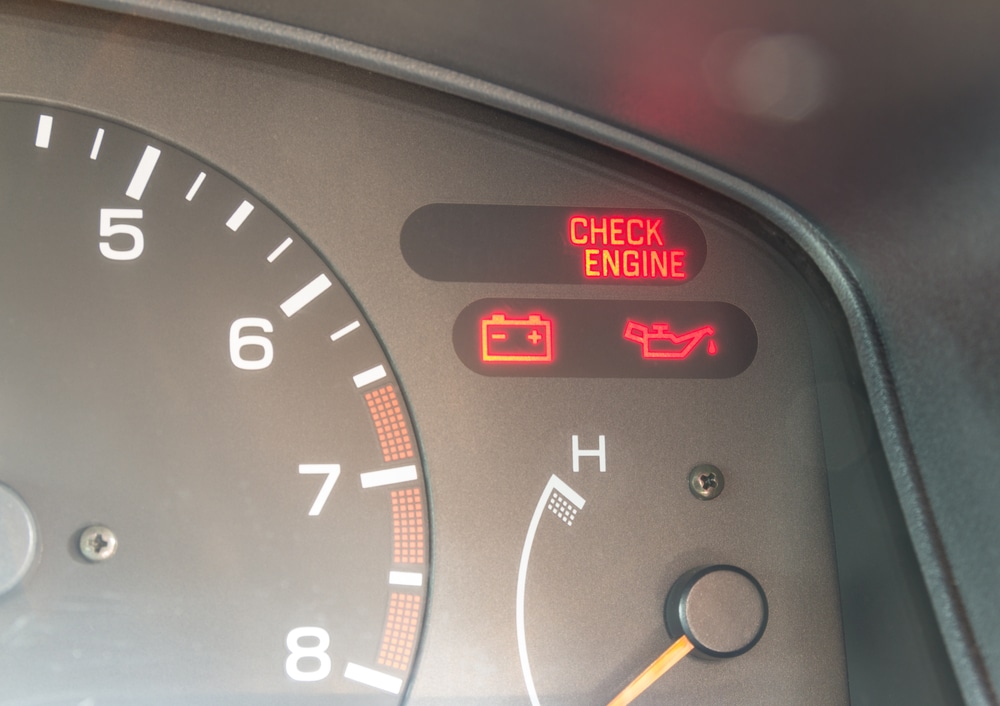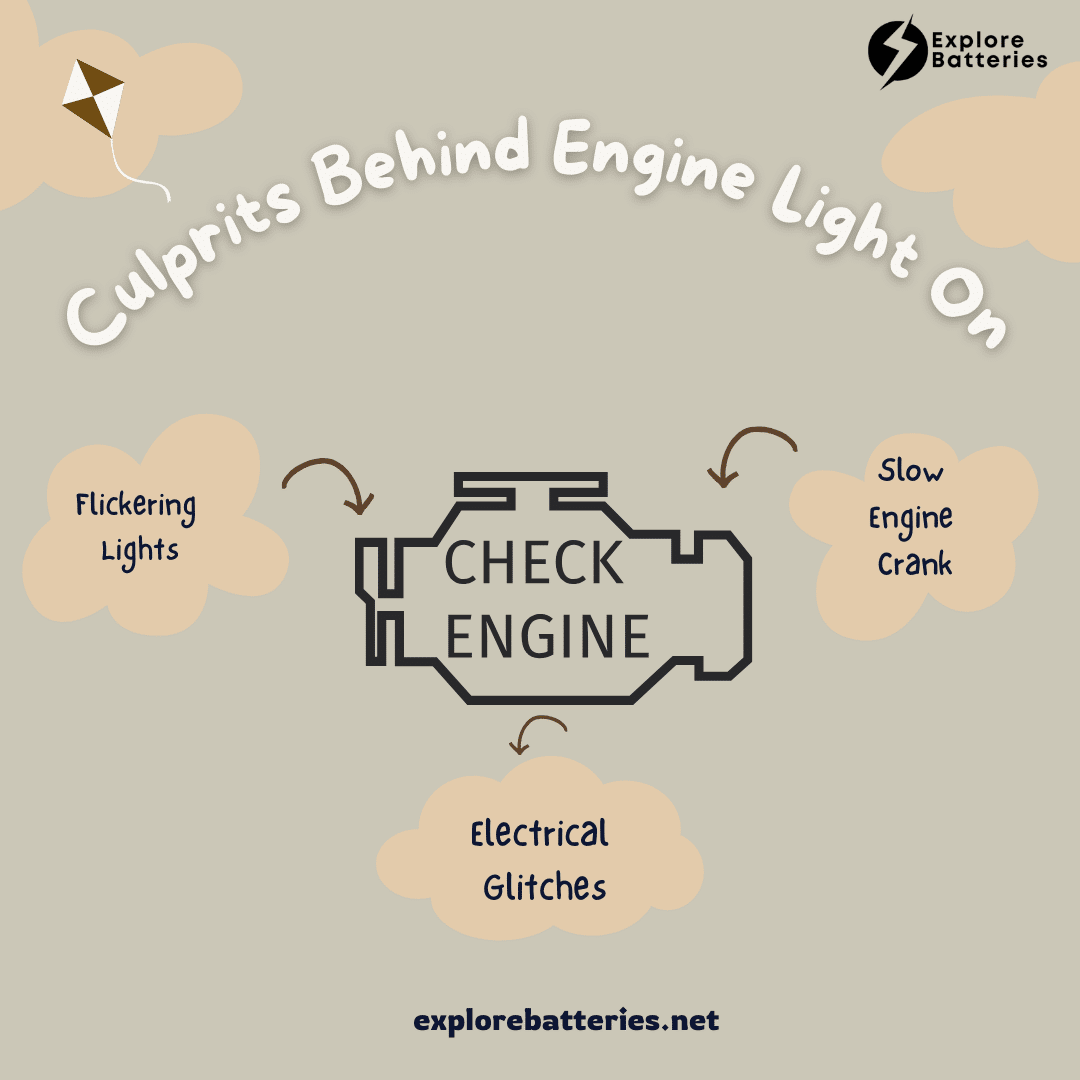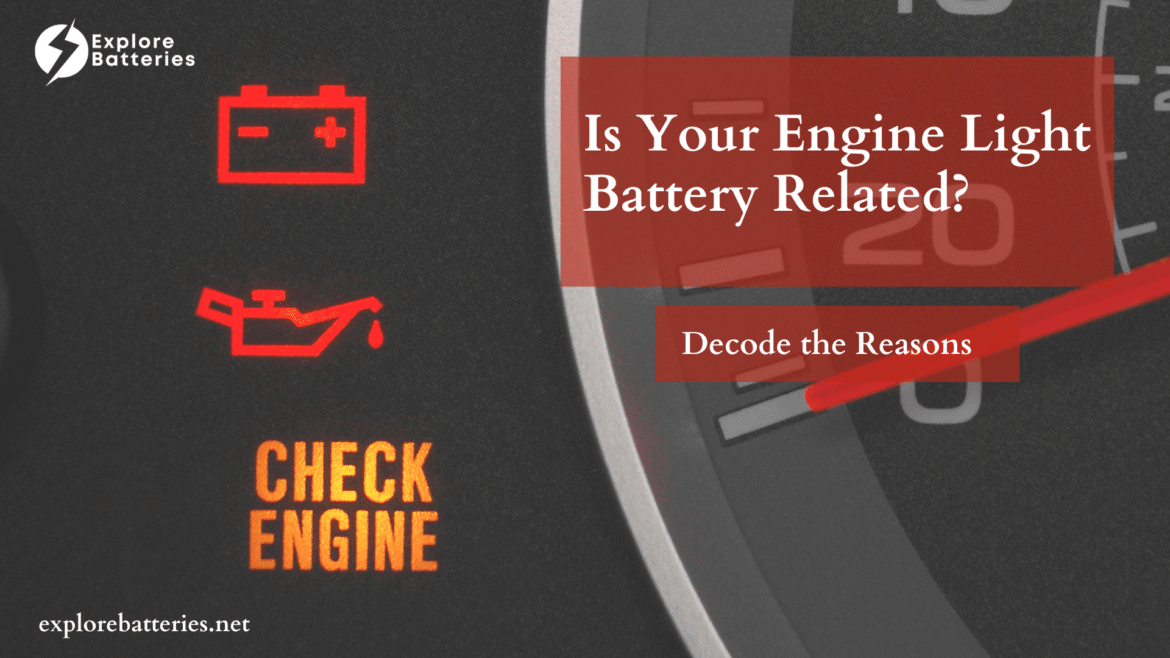Table of Contents
The check engine light—an orange beacon on the dashboard- makes every driver’s heart skip a beat. While this light typically signals an engine or emissions issue, sometimes a weak or bad battery can also be the sneaky culprit behind its glow. Before worrying about costly repairs at a repair shop, let’s explore how a bad battery problem might trigger that dreaded light on your dashboard.
Could It Really Be the Battery?

Your car’s battery powers all the electrical systems, from starting the engine to running electronics. When the battery is weak, it can disrupt sensors and electronic components, which sometimes results in the check engine light coming on.
For example, a low battery charge can send “low voltage” signals, causing the vehicle computer to light up the dashboard. So, a simple battery issue could be why that check engine light is on, even if there’s nothing wrong with the engine itself.
Signs That the Battery Might Be Responsible

Wondering if the battery is the source of your check engine light? Here are a few clues to look for:
Dim or Flickering Lights
A low battery often struggles to keep your headlights and dashboard lights consistently bright. If your lights are dim or flickering, low battery voltage could be the cause.
Slow Engine Crank
If your engine sounds sluggish when you turn the key, it could be a sign of a bad battery. The vehicle computer might pick up on this slower-than-normal start and trigger the check engine light.
Other Electrical Glitches
Are your radio or power windows acting up? A bad battery can cause these minor electrical issues, which the vehicle computer might interpret as a problem worth flagging.
Battery Warning Light is Also On
If you see a battery engine light (a small battery icon) along with the check engine light, it’s a good hint that the battery might need attention.
However, if you think that everything else is okay but the car battery light is on, stop wondering what that is. With our comprehensive guide on car battery lights, you can decode the reasons. So, check it out now.
When It’s Not Just the Battery
While a bad battery can cause the check engine light to come on, it’s not the only possibility. Other common triggers include:
- Loose Gas Cap – Surprisingly, a loose or cracked gas cap can cause the check engine light to illuminate! It’s one of the easiest fixes, so check this first.
- Faulty Oxygen Sensor – This sensor monitors fuel and airflow sensor levels in the engine. When it fails, it can trigger the light.
- Ignition System Issues – Problems with the spark plug, coils, or wiring can also set off the check engine light.
- Catalytic Converter – A failing catalytic converter can also cause the exhaust system to check engine light battery warning.
How to Check Your Battery?
Suspect your battery? Many auto parts stores offer free battery testing, which measures your battery’s charge and voltage. If the test shows the battery is on its way out, changing it might be all you need to make that pesky check engine light disappear. Using a code reader can also help pinpoint specific issues.
In a Nutshell
The check engine light isn’t always a sign of serious trouble; sometimes, it’s just a cry for a new battery. Consider charging the battery first if you’re noticing dim lights, slow cranking, or other unusual electrical issues. A quick fix could save you a lot of stress—and a lot of money.

